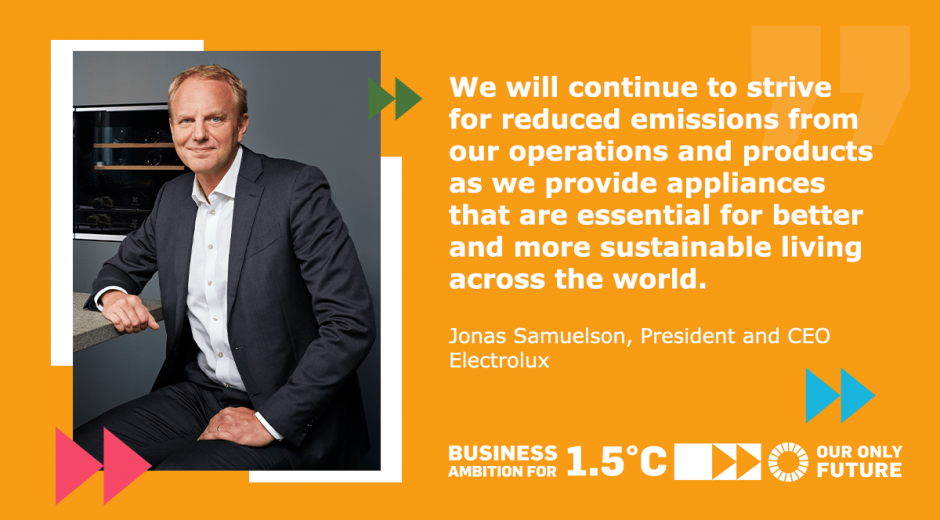The pandemic emergency has changed the world significantly, but environment protection remains a priority for many industry protagonists, such as Electrolux that in 2018 was one of the first 100 companies in the world to establish approved Science Based Targets to reduce absolute carbon dioxide emissions from operations by 80% and emissions from products by 25% by 2025. Electrolux also set a company target for 2030 to be climate neutral with zero carbon emissions from operations.
As countries work on economic aid and recovery packages in response to Covid-19, the Swedish company joins 155 major societies in signing a statement from the Science Based Target Initiative, urging policy makers to align their recovery plans with the latest climate science.  «In the face of these interconnected crises – the statement Uniting Business and Governments to Recover Better said – we cannot afford to tackle one or the other. Human health depends on planetary health. We can — and must — tackle both».
«In the face of these interconnected crises – the statement Uniting Business and Governments to Recover Better said – we cannot afford to tackle one or the other. Human health depends on planetary health. We can — and must — tackle both».
Electrolux remains committed to its Science Based climate targets for 2025 and to become climate neutral along the value chain by 2050, in alignment with the Paris Agreement to keep global warming well-below 2°C.
«The corona pandemic has forced business into unprecedented territory but we believe addressing climate change is as urgent as ever. We will continue to strive for reduced emissions from our operations and products as we provide appliances that are essential for better and more sustainable living across the world – says Jonas Samuelson, Electrolux President and CEO.
Numerous achievements and initiatives to this end were recently reached by the company, which absolute CO2 operations emissions have decreased by 75% since 2005 while over 75% of electricity use in operations comes from renewable energy sources.
«As a signatory of the Uniting Business and Governments Recover Better statement – Henrik Sundström, VP, Group Sustainability Affairs stated – we support a faster transition from a grey to a green economy».



